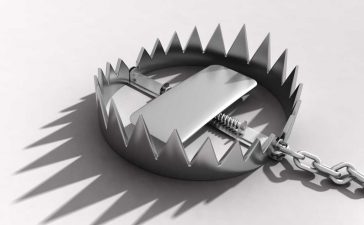
Debt consolidation is a way to combine various debts into one liability so you can pay it off through new financing methods. One of these methods is taking a personal loan. You’ll ask a lender to loan you enough to combine all your debts and then start repaying the new lender only. There are a few benefits and concerns about this debt consolidation method. Read on!
What is a Personal Loan, and Who Qualifies for One?
A personal loan meets short-term financial needs and emergencies where savings are insufficient or unavailable. When you apply, the lender credits your account and sets the monthly installments needed to repay it.
You can get these loans from many sources, including credit unions and banks. There’s also a myriad of online lenders. The process is quite simple. That’s why these loans are becoming popular. For example, to apply for personal loans in North Carolina, search online and fill out your application form.
Such lenders ask for proof of income and identification documents, such as a government-issued ID. So, if you’re already in debt, should you apply for a personal loan to reduce it?
The Benefits of Debt Consolidation Using Personal Loans

Peace of Mind
Living in debt is one of the worst experiences. You live in fear. One, you may lose the collateral used to apply for the loans. Additionally, you may not get a new lender during an emergency because of your credit history. Consolidation gives you peace of mind because you know the exact day you’ll be debt-free, unlike when dealing with multiple repayment timelines.
Such a Loan is Purposeful
Your lender will expect you to use the funds for debt consolidation only. Therefore, they might pay your creditors directly, so you won’t have the temptation to use the money for other financial needs.
It Combines All Your Loans
You can combine your credit card debts and other loans and pay off all of them. Also, consolidation reduces the number of lenders you owe. Therefore, you only worry about meeting the terms of one lender.
It shrinks your debt because it lets you pay off the older loan at a new, lower rate.
There are Unsecured Personal Loans
Getting a loan without collateral makes personal loans ideal when you’re already in debt.
It Improves Your Credit Score
Debt is one of the factors that lower your credit score. Your payment history worsens when you have pending credit card repayments or defaulted bank loans. On top of that, your credit utilization rate decreases when you reach your credit maximum.
Therefore, debt consolidation can lower your credit utilization rate and maybe keep it under the preferred 30%. Your credit score will decrease when you apply for a new loan to consolidate your debts. That’s because the lender will run a hard inquiry about your credit. But it’ll improve once you clear debts and repay the new loan consistently.
The Concerns about Debt Consolidation Using Personal Loans
Although a personal loan doesn’t have a rate as high as a credit card, it’s still high for someone with bad credit. Additionally, you’ll spend on fees during application and processing and add to your total debt.
Another reason this option isn’t for everyone is how easily paying off your debts might entice you to get a new loan. If there’s still a need or want that your income can’t meet, you’ll find yourself asking for a new loan. Thus, consolidation doesn’t solve the reason you got into debt.
When Should You Use a Personal Loan to Consolidate Your Debts?
There are times a personal loan is the wiser option for debt consolidation. Let’s mention a few.
- When you have good credit
It’ll get you a loan at a lower rate; hence, you won’t pile up more debts.
- When you’re in control of your spending
It’ll mean you have a good cash flow to avoid applying for new loans.
- When you have numerous debts
If you’re only struggling with a small, single loan, you can use other ways to settle it. On the other hand, if you have multiple debts, repayment penalties, and fees, consolidate them.
Final Thoughts
It’s a good idea to consolidate your debts if it’ll give you lower monthly repayments and interest rates. Additionally, you should consider this strategy if it’ll shorten your repayment term.
A personal loan can consolidate your debts and give you better interest rates. It reduces numerous repayments to one. You can automate that single monthly repayment to avoid defaulting. But before you apply for it, be sure you’re in control of your spending to avoid getting into debt again.












